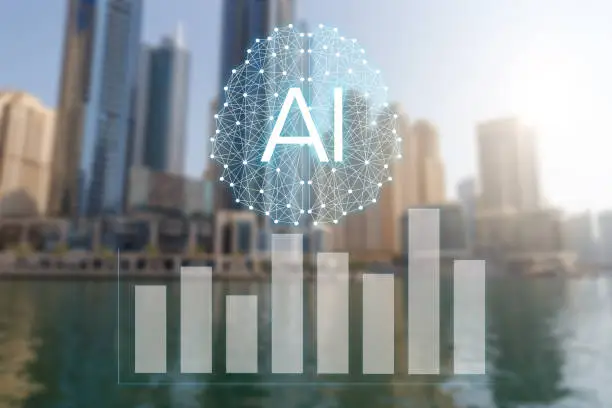UAE Future AI Court: Introduction
The United Arab Emirates (UAE) is taking another bold leap toward the future by launching an AI-powered digital court system that will operate without traditional lawyers. Known as the “Future AI Court,” this ambitious project marks the beginning of a new chapter in global law and governance. It reflects the UAE’s ongoing mission to integrate artificial intelligence (AI) into daily life while improving efficiency, accuracy, and accessibility in the judicial system.
This new legal model will allow individuals and businesses to submit and resolve their disputes entirely online, reducing delays and cutting down on the enormous costs associated with traditional court cases. With this move, the UAE is setting a global precedent for how technology can transform justice systems worldwide.
UAE Future AI Court: H2: A Step Toward Smarter Governance
The “Future AI Court” will be managed by advanced AI systems capable of analyzing legal documents, reviewing evidence, and generating fair and balanced judgments based on UAE’s civil and commercial laws. The digital court aims to handle civil and business disputes, online contract violations, and e-commerce issues without human lawyers or lengthy hearings.
This new approach will not only save time and resources but also make justice more accessible for individuals who cannot afford costly legal representation. By removing unnecessary layers of bureaucracy, the UAE is building a system that ensures faster resolutions and promotes trust in digital justice.
H2: How the AI Court Will Function
The Future AI Court is being designed to operate in several simple, technology-driven steps:
H3: Step 1 – Filing the Case
Parties involved in a dispute can submit all documents, agreements, and digital evidence through a secure online platform.
H3: Step 2 – AI Review and Analysis
The AI software will then evaluate the materials using natural language processing (NLP) and machine-learning algorithms. It will analyze statements, identify contradictions, and compare them with relevant UAE laws and previous rulings.
H3: Step 3 – Decision Generation
Once the data is reviewed, the AI will produce a draft verdict based on objective legal reasoning.
H3: Step 4 – Human Oversight
In the initial stages, a panel of human judges and legal experts will review AI-generated verdicts to ensure fairness and accuracy. This hybrid model keeps the human touch in justice while embracing automation.
H2: Why the UAE Is Leading This Initiative
The UAE’s National Artificial Intelligence Strategy 2031 encourages the use of AI in all key sectors, including health, education, and governance. The justice system is now becoming part of this transformation.
There are several key reasons behind this initiative:
-
Efficiency: Traditional court cases can take months or even years. The AI system will resolve cases in days or weeks.
-
Cost Reduction: Digital courts minimize the need for costly lawyers, paperwork, and in-person hearings.
-
Transparency: All AI decisions are based on documented laws and data, reducing the chances of corruption or bias.
-
Innovation Leadership: The UAE wants to be seen as a pioneer in future-ready governance models.
By merging technology with law, the country aims to create a justice system that reflects its smart-nation vision and aligns with its goal to become a global hub for innovation.
UAE Future AI Court: H2: Balancing Technology and Fairness
While the project is groundbreaking, it also raises important ethical and legal questions.
Experts warn that AI, despite its precision, lacks human empathy and emotional understanding. A purely algorithmic approach to justice might overlook moral nuance or cultural sensitivity.
To address this, UAE officials have assured that AI will not completely replace humans. Instead, it will act as a decision-support system, helping judges and legal administrators handle cases faster and more effectively. Over time, as AI systems learn from hundreds of previous cases, their accuracy and fairness will continue to improve.
H2: Global Response and Impact
The international community is watching closely. Countries like Singapore, South Korea, and Estonia are already testing AI-based systems for small claims and traffic violations. The UAE’s model, however, goes a step further by fully integrating AI into case management and decision-making.
If successful, this system could become a template for future global courts, especially in handling:
-
Online business disputes
-
Smart contract enforcement
-
Cybercrime and digital transactions
-
Cross-border commercial conflicts
Legal experts believe that this could make international arbitration faster, cheaper, and more transparent. Businesses might even prefer to operate in regions offering AI-assisted courts because of their predictability and efficiency.
H2: Challenges Ahead
Despite its potential, the system will face challenges in:
-
Ensuring data privacy and cybersecurity.
-
Preventing algorithmic bias and discrimination.
-
Maintaining accountability when an AI makes a wrong judgment.
The UAE plans to address these concerns by implementing strict ethical standards, auditing systems, and keeping human judges in supervisory roles until AI earns full trust.
Conclusion
The UAE’s AI-driven digital court represents more than just a technological experiment — it’s a vision of a future where justice is delivered swiftly, fairly, and transparently. By blending artificial intelligence with human oversight, the Emirates is proving that innovation and justice can work hand in hand.
As the world moves deeper into the digital era, the UAE’s “Future AI Court” could become the foundation for a global transformation in the way societies deliver and perceive justice.

